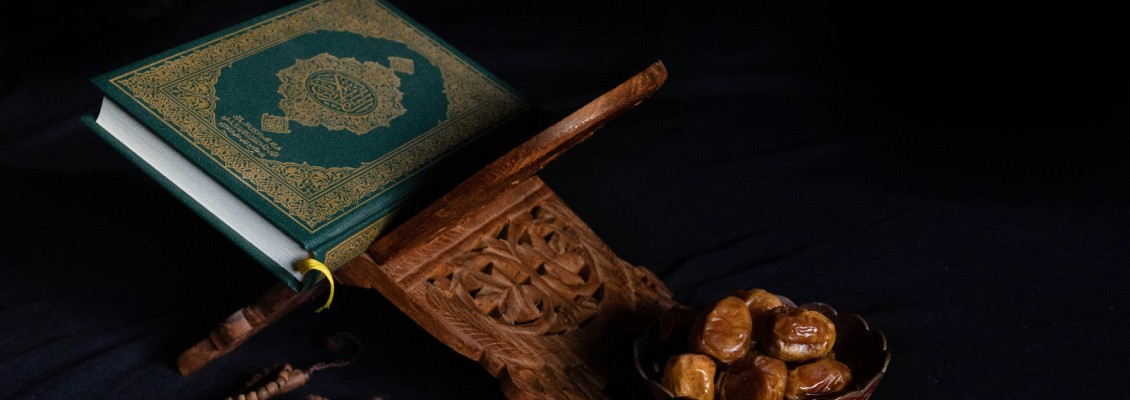
MUBARAK RAMADAN
It fills me with great excitement to have this article published during the holy month of Ramadan and to have the opportunity to write about the most precious time of the year for Muslims. Since you are perusing this article, it implies a mutual level of interest between us. So, what is Ramadan and why is it so important?
In Ramadan, we Muslims engage in worship, which is called fasting; the term refers to "From dawn to sunset, consciously avoiding eating, drinking and sexual intercourse and restraining our self-control.”
Fasting has been made obligatory for us with the revelation of “O you who have believed, decreed upon you is fasting as it was decreed upon those before you that you may become righteous” [Quran 2:183]. As we can understand from the verse, this worship of fasting was practiced before the coming of the last revelation, the revelation to the Prophet Muhammad (pbuh). Today, fasting still preserves its importance in many religions and cultures such as Christianity and Judaism. The reason for this is, the source of the Abrahamic religions comes from the one and only Allah.
Indeed, Allah’s orders and prohibitions are for the good of his servants. Our worship will not decrease or increase anything from Allah, the Creator of the entire universe and the magnificent order. However, it is an undeniable fact that there are great benefits for us in the worship God wants us to do, and great harm in the things he forbids. Likewise, fasting has many positive effects that we are aware of and that we are not aware of.
The Arabic word for fasting is “sawm". This word, which means abstain, indicates that we should keep ourselves away from bad behavior and bad thoughts, also keeping ourselves away from the blessings God has given us for a certain time. We discipline our souls by refraining and with patience. First, we restrain ourselves against bad behavior and then against tons of beautiful blessings we have and sometimes forget that we have. When we stay away from the blessings that Allah has given us, we realize how much we need to be grateful for. Then we remember how incapable we are. Without the blessings of our Lord, we cannot even fill our stomachs. In fact, we realize how important sleeping, breathing, and many actions that seem very simple to us during the day are actually for the continuity of our lives. In this way, we get the chance to get rid of our daily ambitions and look at life from a different perspective. And we understand that human beings were not created just to eat, drink, have fun and shop.
Furthermore, fasting strengthens the feeling of empathy among people. While there are 650 million obese people in the world, 3.1 million children die from hunger each year, which is clearly due to the problematic system established by humans. As people with awareness, we must do our part in this regard. This leads us to other concepts related to the month of Ramadan: Fitrah, fidyah and zakat. I can explain these terms generally as food, drink, clothing or financial aid provided to those in need. However, each has a different reason and place for Muslims. For example, fitrah when someone is unable to fast during Ramadan due to medical conditions, will not be able to make up the fast.
Also, fasting in Islam teaches unity beyond intermittent fasting currently in diets and popular culture. Because all family, friends and relatives fraternize at our iftar tables. We break our fast together, eat together, talk together. Those tables are the symbol of happiness, love, patience and gratitude for us. Moreover, I would like to mention seven physical benefits of fasting that have been backed by science, which you might have learned from modern terms such as intermittent fasting:
1. Accelerates Fat Burning
2. Strengthens Mind Functions
3. Strengthens the Body Against Difficult Conditions Soothes the Stomach and Intestines
4. Has Positive Effects on Insulin Resistance Strengthens the Immune System
5. Helps to Prevent Cancer
6. Helps Prevent Alzheimer's Disease Maintains Heart Health
7. Lowers the Risk of Type 2 Diabetes
In brief, fasting has both physical and spiritual benefits for us. It is an important worship that will bring calmness, peace and health. It should not be understood as just spending the day without food or water.

Leave a Comment